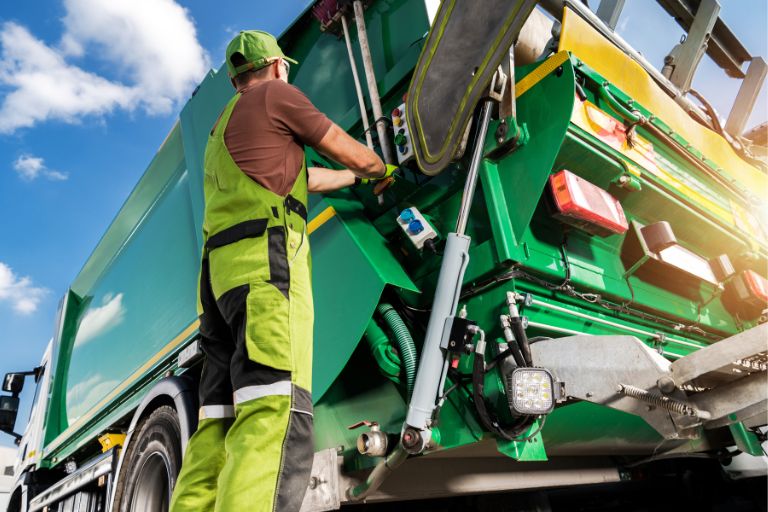Blog
Your Guide to Waste Collection Efficiency: Doing More with Less in Your Community
by Routeware Team • October 13, 2025

Whether you manage waste collection in Portland, Oregon, or oversee city services in Toronto, Ontario, one challenge remains the same: how to make waste collection efficiency a daily reality.
Across North America, local governments and private haulers are rethinking their approach to waste collection efficiency. The goal: build cleaner, smarter, and more sustainable communities through efficient waste management systems that reduce waste of every kind — from time and fuel to emissions and money.
What Is Waste Collection Efficiency?
In simple terms, waste collection efficiency means using fewer resources to achieve better results.
It’s about designing smarter collection routes, managing driver time effectively, and minimizing fuel use — all while maintaining high service quality.
An efficient waste management system doesn’t just focus on trucks and bins; it connects planning, people, and data to create smoother operations from curbside to landfill.
Why Waste Collection Efficiency Matters
Improving efficient waste disposal benefits more than just your operations team. It has a ripple effect across your entire community:
- Cleaner air and reduced emissions – Optimized routes mean fewer miles driven, lowering your city’s carbon footprint.
- Happier residents and businesses – Predictable pickups and fewer missed collections improve public satisfaction.
- Lower operational costs – Reduced fuel use, maintenance, and overtime translate to real savings.
- Safer crews and streets – Streamlined operations reduce rushed driving and on-route stress, leading to fewer incidents.
Efficiency isn’t just about doing more — it’s about doing better.
Steps Toward More Efficient Waste Management
Building a more efficient waste management system doesn’t happen overnight. But consistent, data-informed steps can deliver major gains:
- Regularly Review Routes
Routes that worked five years ago may no longer reflect today’s population or traffic patterns. Periodic analysis can uncover wasted miles and outdated routes. - Engage the Community
Educating residents about sorting rules and collection schedules minimizes contamination and rework — small improvements that lead to major efficiency gains. - Use Data to Drive Improvement
Tracking fuel use, idle time, and completion rates helps identify trends and target areas for optimization. - Invest in Your People
A well-trained team is the foundation of an efficient waste management operation. Training, communication, and feedback loops empower crews to make smart, safe choices on every route.
The Future of Efficient Waste Management Systems
The future of waste collection efficiency is intelligent and interconnected. Across the U.S. and Canada, municipalities and haulers are increasingly turning to data, automation, and real-time insights to plan better routes, respond faster, and reduce their environmental impact.
But even as technology evolves, one truth remains: the most efficient waste disposal systems are built on collaboration between city leaders, operators, and the communities they serve.
Key Takeaways
- Waste collection efficiency is about using every resource — time, fuel, and effort — wisely.
- Efficient waste disposal improves sustainability, safety, and service quality.
- Data and community engagement drive long-term operational gains.
- The future of waste management lies in smart, connected, and people-first systems.
No matter the size of your operation, one question leads the way forward:
How can we collect smarter — not just faster?